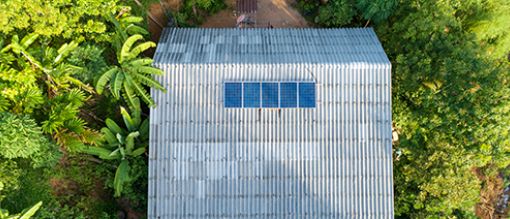A report launched today has found that PNG can both improve energy access while also meeting its commitments to the Paris Climate Agreement to reduce carbon emissions in the energy sector.
Building on What Works, a collaboration between Papua New Guinean environmental group Centre for Environmental Law and Community Rights (CELCOR) and the Sydney-based Jubilee Australia Research Centre, confirms previous findings that it is now cheaper to produce electricity from renewable energies—especially solar and hydro—rather than fossil fuels.
The report also makes the important observation that new fossil fuel power plants will ‘lock-in’ PNG’s dependency on fossil gas, coal and other fossil fuels for decades to come. This would undermine PNG’s renewable energy targets and contradicts international energy policy advice.
Other findings of the report include:
- PNG government agencies have already identified a host of renewable energy projects that, if all went ahead, could supply 78% of PNG’s on-grid electricity by 2030.
- More grant-based finance rather than loans are needed to meet the upfront costs of new infrastructure. This could include development finance and potentially climate finance.
- Off-grid energy access using small scale renewable energy can help support energy access climate resilience and local economic development in the village economy..
- Strong attention to gender is needed to ensure that the renewable energy sector develops fairly and equitably.
- It will be critical to train women, communities, workers and professionals in installing, maintaining and end-of- life recycling of renewable energy technology.
- PNG businesses could take a leadership role in business associations and making public statements in support of renewable energy.
Mr Peter Bosip, the Executive Director of CELCOR said: ‘Some might think that it not possible for PNG to pursue these two goals at once: i.e. improving energy access and cutting emissions. We believe that the opposite is the case—that the expansion of renewable energy technologies in PNG will help us meet our energy access targets faster and cheaper. However, it means a significant change to our energy systems and to the ways in which we have been operating for many decades.’
‘If PNG is able to take successful steps in cutting its own fossil fuel emissions, it will strengthen this strong moral voice of ours in regional and international climate negotiations. This will in turn put pressure on high-emitting countries to do better, and ultimately result in a more liveable planet for everyone, not least us here in PNG.’
Read the full report: Building on What Works (2023)
